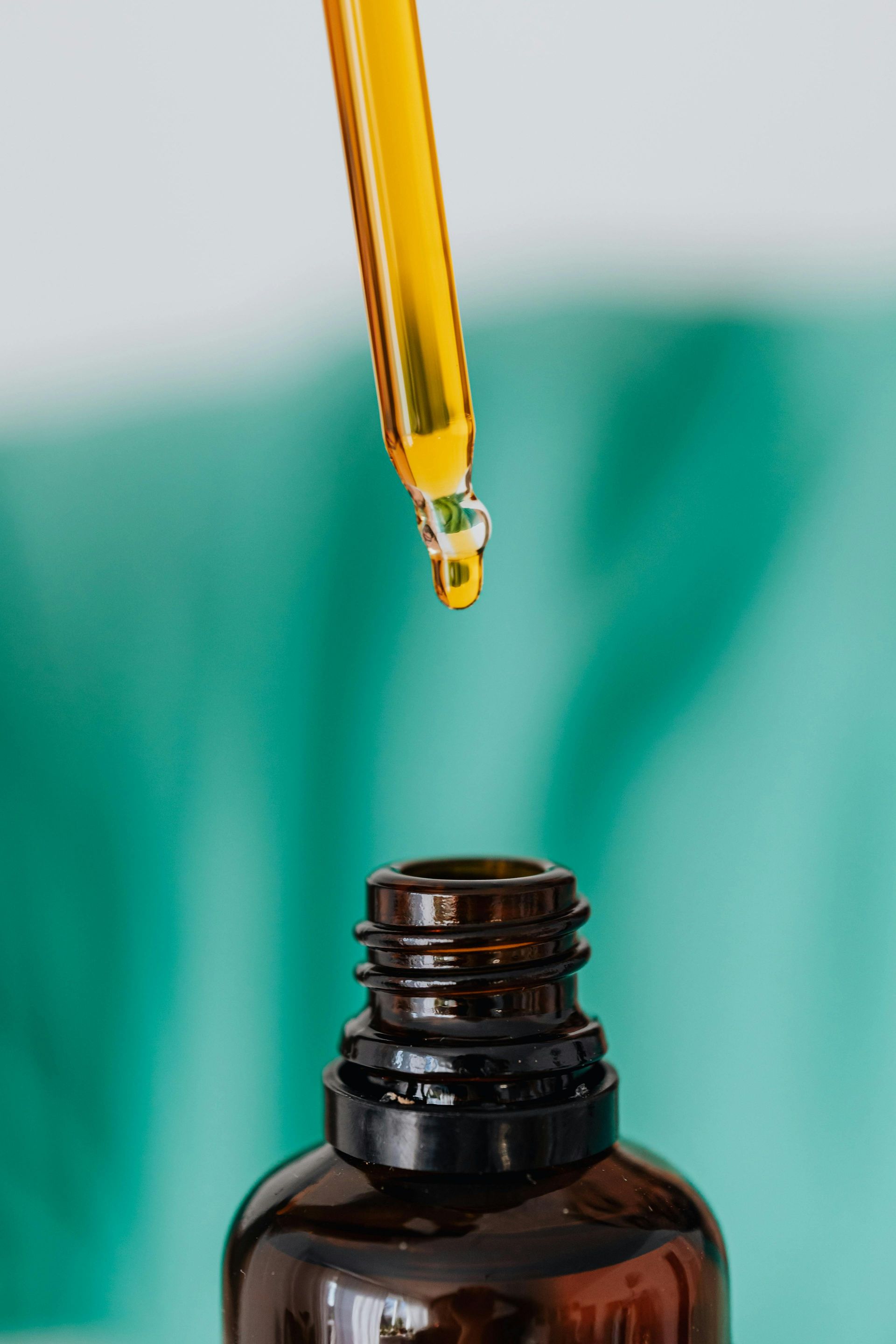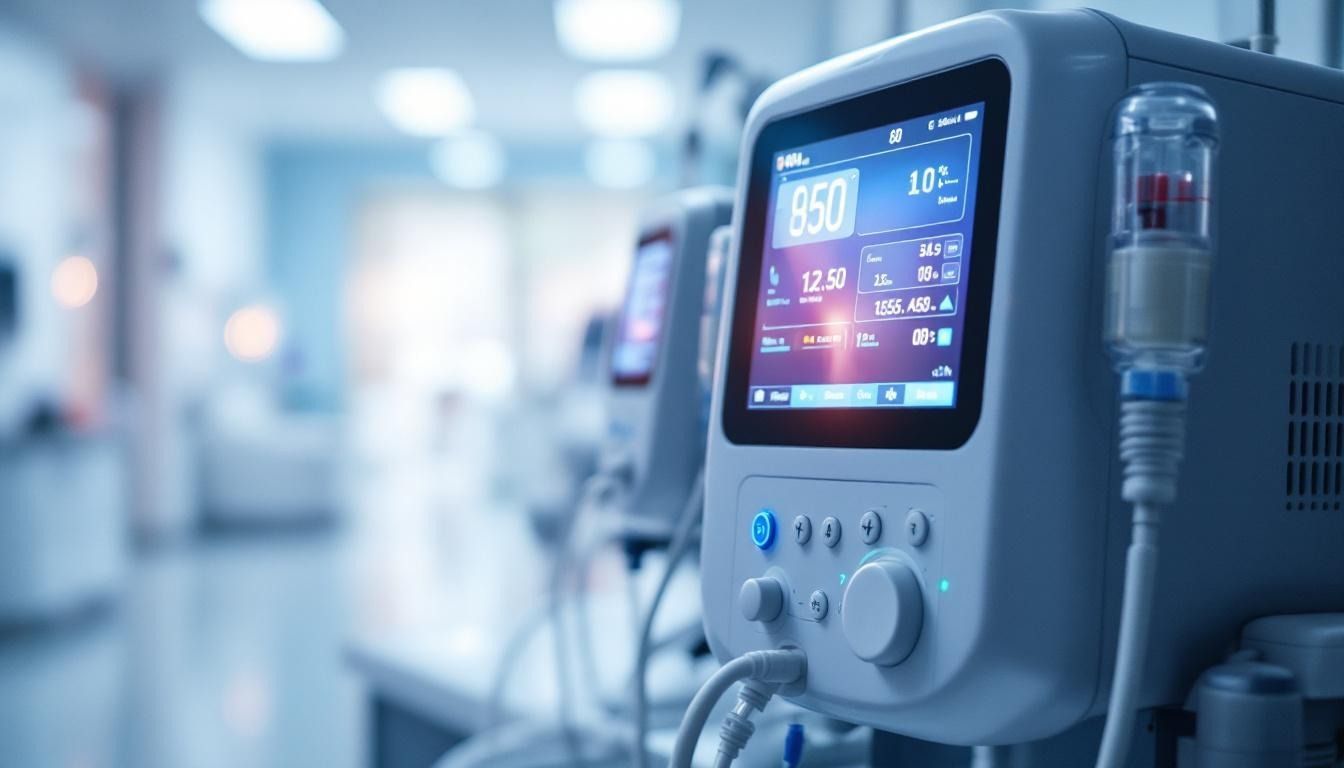How do custom sterile injectables help patients?
Introduction to Custom Sterile Injectables
Custom sterile injectables represent an evolving frontier in the field of pharmaceuticals, offering tailored treatment options that address the diverse needs of patients. With growing application in managing chronic diseases, life-threatening conditions, and individualized treatment plans, these injectables not only enhance therapeutic efficacy but also improve patient convenience and compliance. Their importance is underscored by stringent manufacturing standards and regulatory compliance, which ensure their safety and effectiveness in delivering critical medications directly into the bloodstream.
The Vital Role of Sterility in Injectables
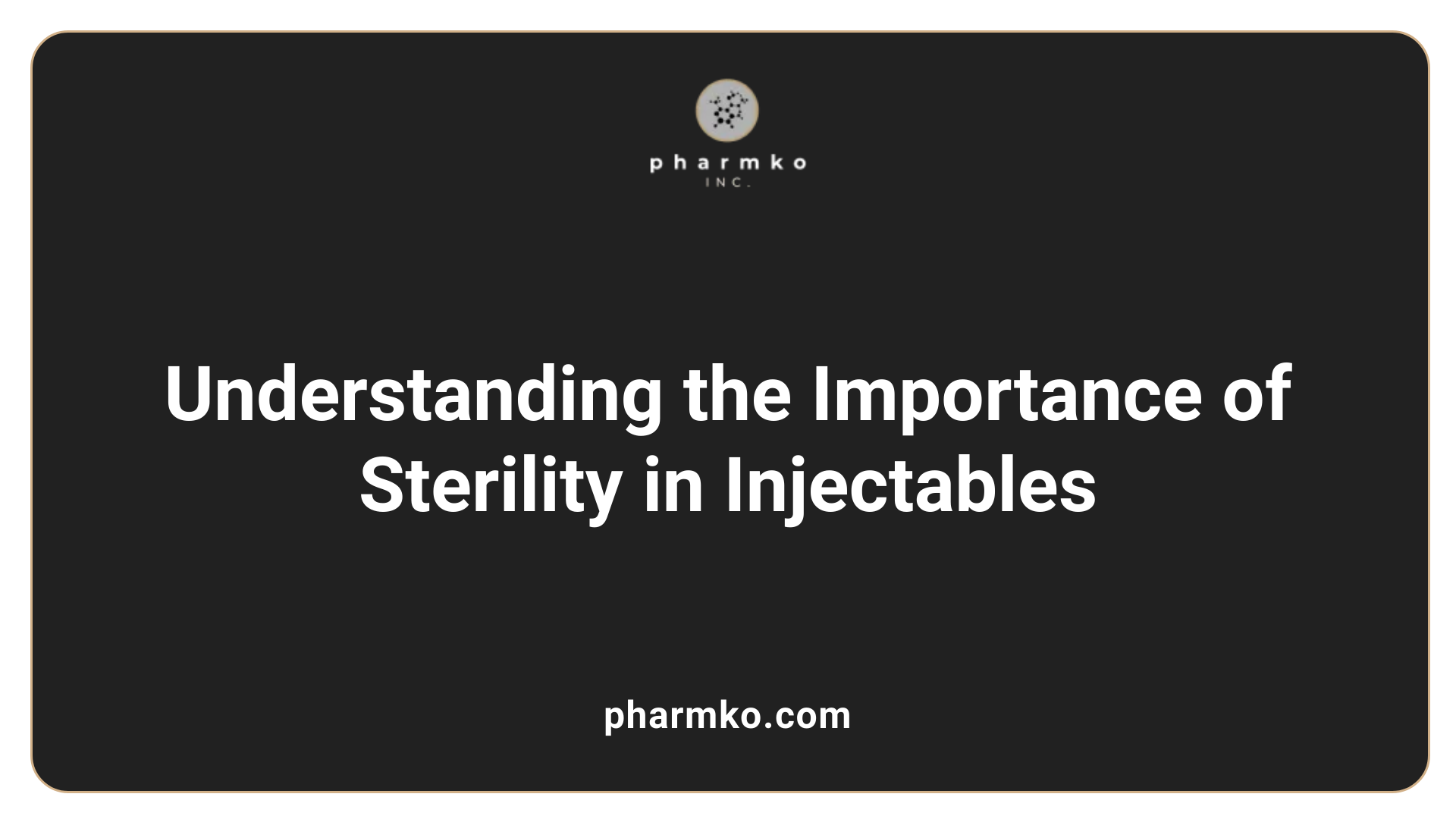
Why is it important for injections to be sterile?
Sterility is vital for injectables because any contamination can lead to severe health risks, including infections and sepsis, potentially resulting in patient death. Sterile injectables are essential in treating numerous life-threatening diseases, such as cancer and HIV/AIDS, as well as chronic conditions like diabetes. The critical nature of their use makes it essential that these products are manufactured with the highest standards of sterility.
Health risks associated with contamination
When sterile injectables are contaminated, patients may experience serious adverse effects. Infections can arise quickly upon injection, compromising the intended therapeutic action and putting the patient at risk of requiring extensive medical intervention. Regulatory bodies like the FDA enforce strict guidelines to mitigate these risks, ensuring that contaminated products do not reach patients. Poor manufacturing practices can lead to incidents that rapidly escalate into life-threatening scenarios.
Manufacturing processes ensuring sterility
The manufacturing of sterile injectables relies heavily on two primary processes: terminal sterilization and aseptic fill-finish. Terminal sterilization occurs as the final step, while aseptic processing ensures that sterility is maintained throughout production. Rigorous quality control measures, automation technologies, and real-time monitoring are integral to preventing contamination. Additionally, controlling raw material quality is crucial; manufacturers must use low-in-bioburden substances to meet regulatory requirements and enhance patient safety. Innovations in manufacturing continue to strengthen these processes, ultimately enhancing the overall sterility, safety, and efficacy of injectable medications.
Sterility and Safety in Biologics and Injectables
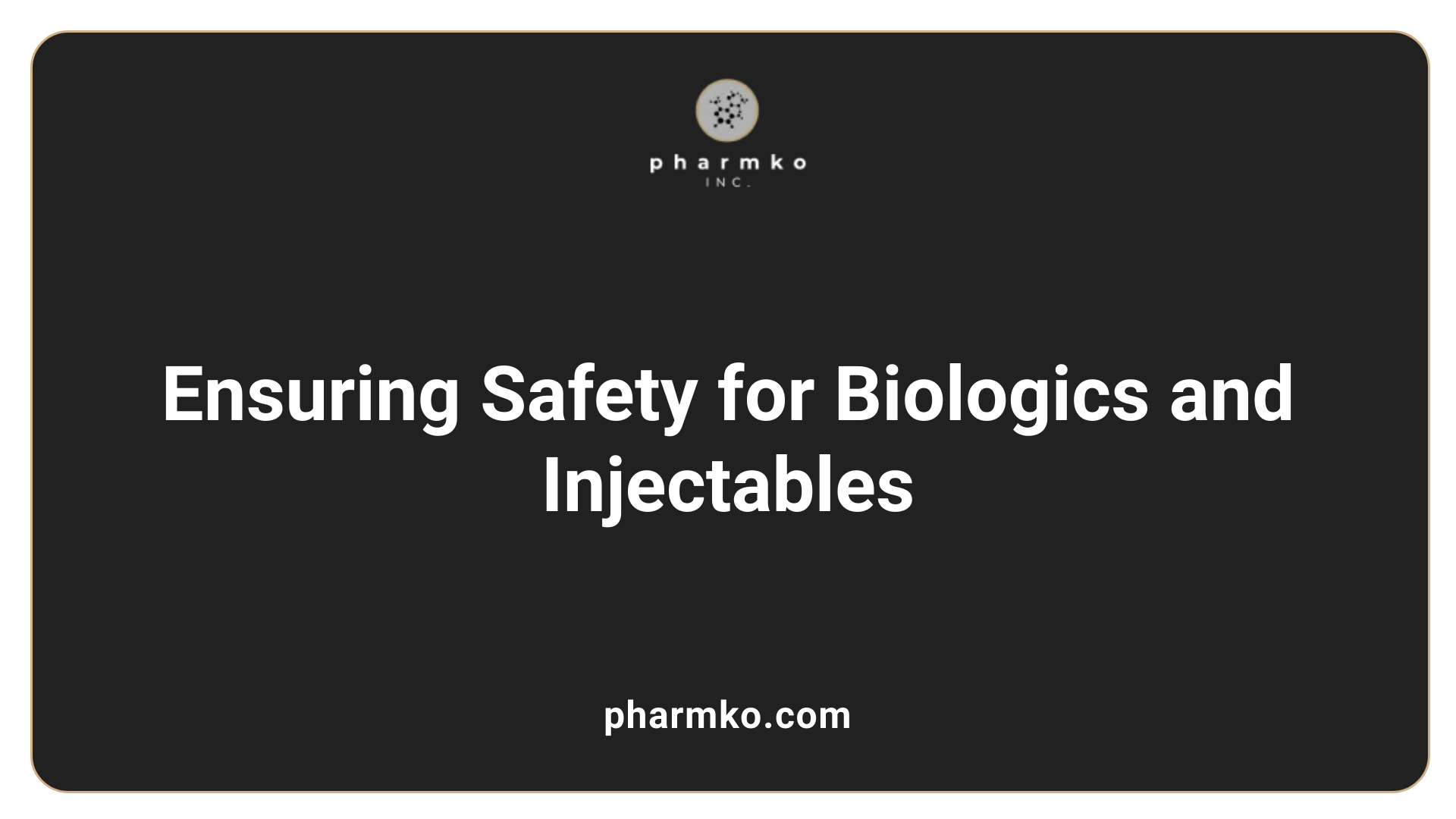
Why must biologics and other injectable products be sterile?
Biologics and injectable products need to be sterile due to their sensitivity to heat and their vulnerability to microbial contamination. This contamination poses significant risks, potentially compromising the safety and efficacy of the medication. The complexity of biologics—composed of proteins, nucleic acids, and living cells—demands stringent aseptic manufacturing processes from the very beginning of production. Unlike conventional medications, these complex substances often come from natural sources, requiring meticulous handling and control throughout their creation.
Challenges in manufacturing
Creating sterile injectables is not without its challenges. The manufacturing environment must be controlled to prevent contamination, which includes using sterile raw materials and employing rigorous quality checks at every stage. For instance, processes like terminal sterilization and aseptic fill-finish are vital. Terminal sterilization occurs post-production, while aseptic processes must maintain sterility throughout, particularly crucial for heat-sensitive products.
Furthermore, manufacturers must strictly control bioburden and endotoxin levels to comply with regulatory requirements. Any lapses in these controls can compromise patient safety.
Role of regulatory bodies
Regulatory agencies, such as the FDA's Center for Biologics Evaluation and Research (CBER), play a critical role in overseeing the development of biologics. They ensure that manufacturers adhere to high standards throughout the production process, safeguarding public health. Compliance with these standards not only fulfills legal obligations but also helps maintain the trust of healthcare providers and patients in injectable therapies. Through regular inspections and stringent guidelines, regulatory bodies work to ensure that biologics can perform their therapeutic roles without introducing added risks to patients.
Applications of Sterile Injectables in Healthcare

What are sterile injectables used for?
Sterile injectables are crucial in the healthcare system, addressing a wide range of conditions. They are particularly vital for treating life-threatening diseases like cancer and managing chronic illnesses such as diabetes and multiple sclerosis. Unlike non-sterile medications, sterile injectables deliver medications directly into the bloodstream or tissues, necessitating rigorous manufacturing processes to prevent contamination.
How do sterile injectables impact chronic conditions?
As chronic conditions become more prevalent, the demand for sterile injectables increases. These products enable personalized medicine, allowing healthcare providers to tailor doses and treatments to individual patient needs. This is particularly beneficial for patients requiring precise dosages for effective pain management, hormone replacement therapies, or treatments for erectile dysfunction. Moreover, innovations such as prefilled syringes enhance patient compliance by simplifying self-administration and reducing the potential for dosing errors.
What factors are driving market growth?
The market for sterile injectables is projected to grow significantly, with estimates reaching $1,677.91 billion by 2030. This growth is fueled by several factors, including the increasing prevalence of chronic diseases, the rising use of biologics, and the demand for self-injected therapies. Additionally, the involvement of specialized CDMOs ensures high quality and compliance with regulatory standards, thus cementing sterile injectables as a cornerstone of modern healthcare.
Enhancing Patient Compliance and Convenience
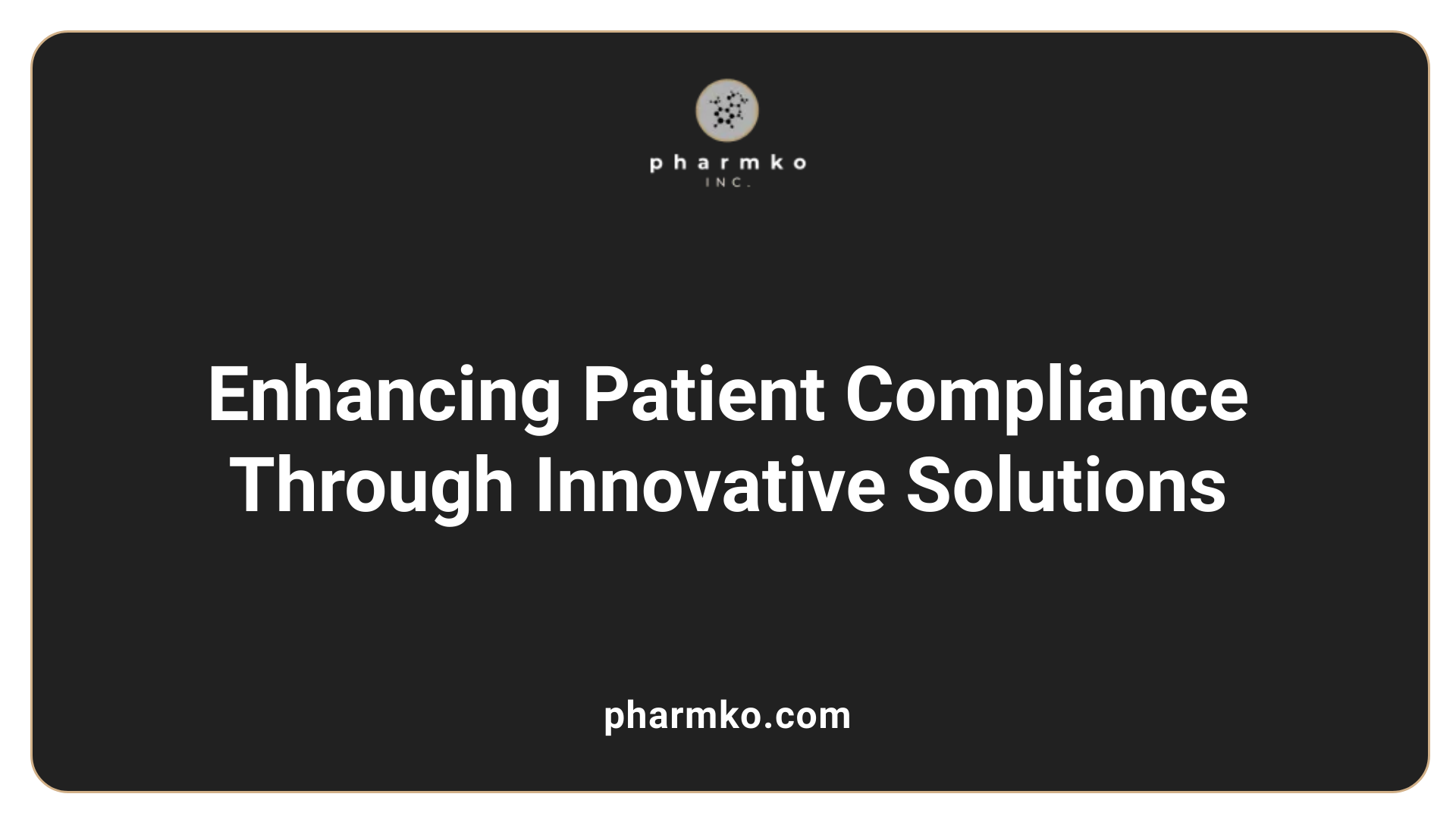
Role in patient adherence
Sterile injectables significantly enhance patient compliance by simplifying self-administration. Devices like prefilled syringes reduce the complexity of traditional vials and syringes, offering ease for patients with limited dexterity, such as the elderly. This approach promotes timely medication intake, crucial for effective treatment outcomes.
Home administration benefits
The ability to self-administer therapies at home is transformative. Patients can skip trips to healthcare facilities, reducing associated costs and waiting times. This convenience leads to improved adherence to treatment regimens, fostering a stronger commitment to managing chronic conditions.
Customized delivery systems
Custom sterile injectables also ensure precision in dosing tailored to individual needs. Innovative delivery systems improve the user experience by addressing patient-specific preferences, like adjusting for needle size and injection speed. As these technologies advance, they play a pivotal role in boosting patient comfort and overall treatment success.
| Benefit | Description | Impact on Patients |
|---|---|---|
| Patient adherence | Simplifying self-administration | Increases compliance |
| Home administration | Eliminates facility visits | Saves time and costs |
| Customized delivery systems | Tailors doses and methods | Enhances comfort and effectiveness |
The Influence of Technology and Innovation
Advancement in manufacturing
The manufacturing of sterile injectables has evolved significantly, leveraging sophisticated technologies to enhance product safety and effectiveness. Contract development and manufacturing organizations (CDMOs) are instrumental in this evolution, utilizing advanced systems to comply with stringent regulatory requirements. This includes ensuring that every component entering the sterile environment meets high-quality standards to mitigate any contamination risks.
Automation and quality control
Automation plays a crucial role in the production of sterile injectables. Robotic systems enhance precision during the aseptic filling process, reducing the potential for human error. Quality control technologies, such as High-Performance Liquid Chromatography (HPLC) and mass spectrometry, help verify the purity and potency of the drugs, ensuring patients receive safe products.
Through serialization and track-and-trace systems, manufacturers can quickly identify and recall any compromised injectables, further safeguarding patient safety.
Innovative delivery devices
The development of innovative delivery devices, like prefilled syringes and autoinjectors, enhances patient compliance by simplifying the self-administration of medications. Ergonomically designed devices with visual cues and safety features improve the overall user experience, making treatments less intimidating and more accessible, especially for those requiring precise dosing.
Personalized Medicine and Custom Sterile Injectables
Tailored Treatment Options
Custom sterile injectables are revolutionizing patient care by providing tailored treatment options tailored to individual health needs. These specialized formulations can address specific conditions with precision, allowing healthcare providers to create unique combinations of medications that are not available in standard formulations.
Addressing Patient-Specific Needs
This personalized approach is especially valuable for managing chronic conditions such as diabetes, pain management, or erectile dysfunction. For instance, intracavernosal injections are custom-compounded with a tri-mix formula to enhance efficacy for men with erectile dysfunction, minimizing side effects compared to one-size-fits-all alternatives.
Role in Chronic and Serious Conditions
The importance of custom sterile injectables also extends to serious diseases. Medications like CAR-T cell therapies modify a patient's immune cells to target cancer directly, showcasing how these injectables can facilitate advanced and personalized therapy options. As therapies evolve, custom sterile injectables are becoming vital in treating a variety of complex health needs.
Trends and Future Prospects in Sterile Injectables

Growth in Market Demand
The sterile injectables market is experiencing significant growth, expected to reach a staggering market value of $1677.91 billion by 2030 . This surge is driven by the rising prevalence of chronic diseases, advances in personalized medicine, and an increase in biologics requiring injectable administration. As patients increasingly favor self-administration options, custom injectable drugs, including prefilled syringes and autoinjectors, are becoming more prevalent.
Future Innovations
Further innovations in sterile injectables are anticipated, particularly with the development of intuitive drug delivery systems . Features like smaller, less painful needles , and automated devices can enhance compliance, especially for patients requiring regular injections. Additionally, there is a notable shift towards customized delivery devices designed to suit specific patient needs based on early-phase feedback, improving overall adherence to treatment regimens.
Regulatory and Safety Trends
Regulatory compliance remains a priority as manufacturers navigate stringent frameworks ensuring product safety and efficacy. Collaborations with Contract Development and Manufacturing Organizations (CDMOs) are crucial in managing risks associated with sterile injectables, as these specialized entities oversee aseptic processes while adhering to quality control standards. As technology evolves, new methods for maintaining sterility and ensuring safety will likely emerge, enhancing patient outcomes.
Conclusion
The advancement and customization of sterile injectables mark a significant turning point in modern healthcare. By integrating technology, ensuring rigorous safety standards, and focusing on patient-specific requirements, this field enhances treatment options and outcomes across a spectrum of health conditions. As the demand for injectable therapies grows, so too will the need for innovative solutions that not only meet but exceed current expectations of convenience, efficacy, and patient safety. The pursuit of these objectives will continue to fuel the evolution of sterile injectables, cementing their role as a cornerstone in the personalization of medical treatment.
References
- Sterile injectables: What they are and how they're manufactured
- Sterile Compounding Injectables | Custom Medications
- The Growth of Sterile Injectables - PCI Pharma Services
- Unlocking The Potential Of Your Sterile Injectable - Bioprocess Online
- What are the Key Trends and Developments in Injectable Drug ...
- Sterile Compounding for Custom Medication - ClearSpring Pharmacy
- Sterile Injectables CMOs: The Empowering Impact of Technology on ...
- Sterile Injectable Drugs Strategic Market Research Report 2024
- Sterile Injectable Manufacturing in Pharma - CordenPharma
- Injectables & Parenteral Formulations - Sigma-Aldrich



